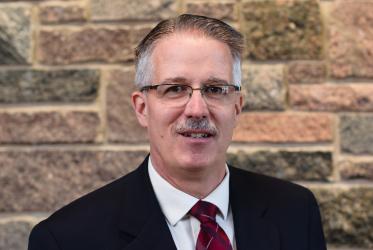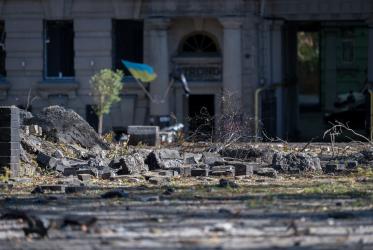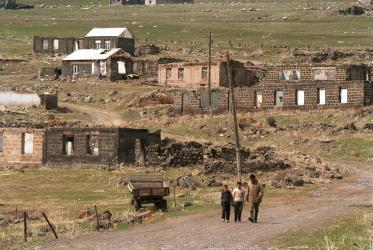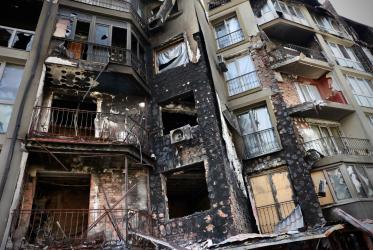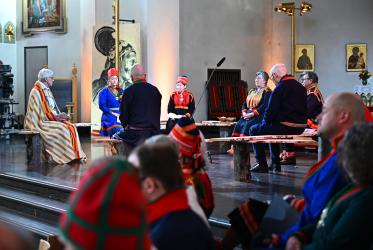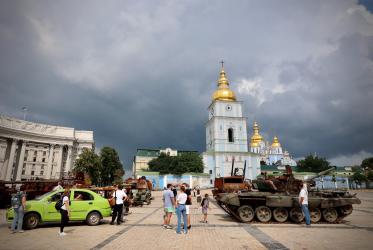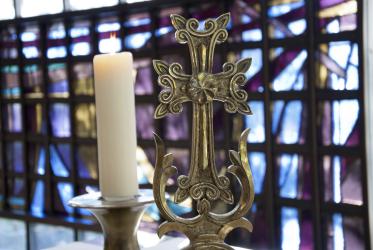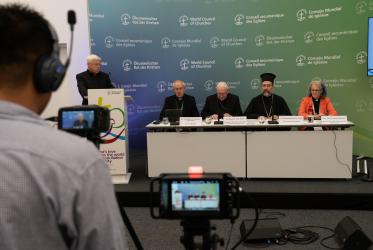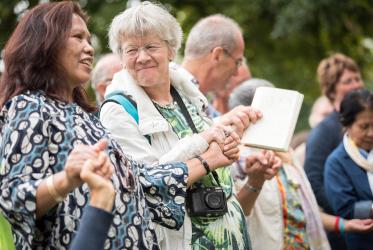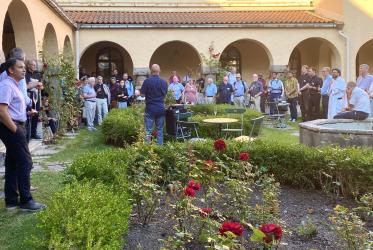Displaying 21 - 40 of 289
Celebration of unity draws churches in Geneva together
24 January 2023
WCC denounces continuing attacks on civilians in Ukraine
16 January 2023
Church of Sweden apologizes to Sámi people, this time in Sápmi
27 October 2022
Promoting human dignity through art
06 September 2022
Women with disabilities want to belong in churches
31 August 2022
EDAN Pre-Assembly starts with induction of new members
29 August 2022



